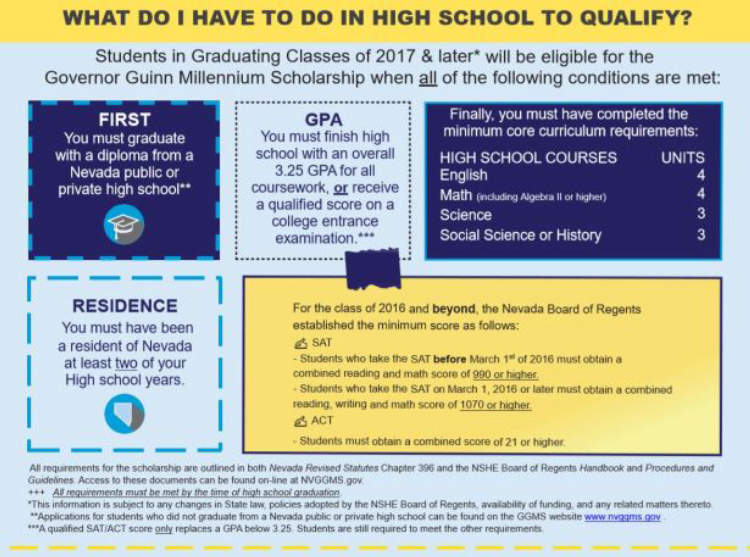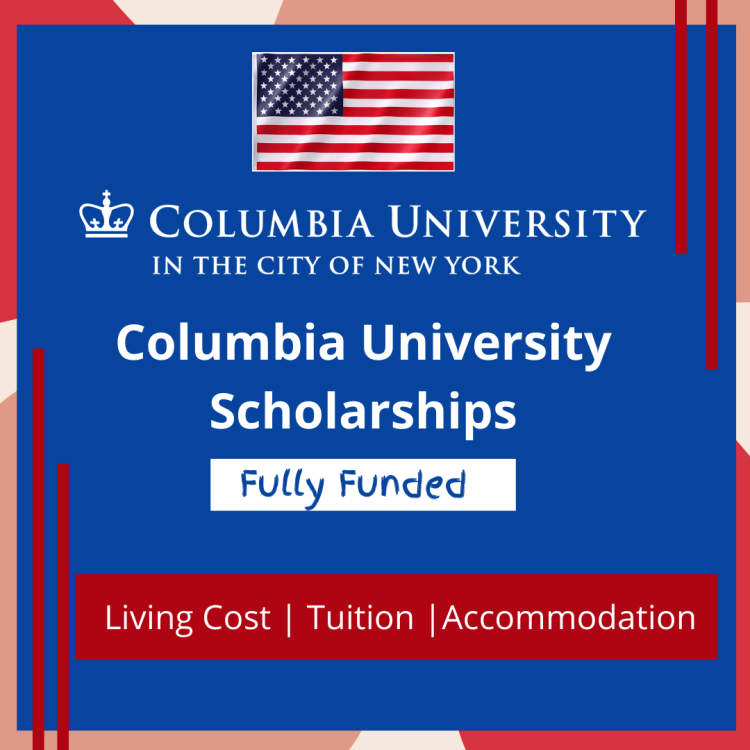Are you dreaming of pursuing higher education at one of the most prestigious universities in the world? Look no further than Columbia University, a renowned institution located in the heart of New York City. With its commitment to academic excellence and rich history of producing groundbreaking research, Columbia offers a range of scholarship opportunities to help you unlock your academic potential.
At Columbia University, scholarships are not just financial aid; they are gateways to endless possibilities for personal and intellectual growth. Whether you are an exceptional student with an impressive academic record or an individual with unique experiences and perspectives, Columbia recognizes the importance of diversity and is dedicated to providing opportunities for deserving students from all walks of life. Through various scholarship programs, the university strives to create a vibrant and inclusive community that fosters innovation, collaboration, and global citizenship.
Scholarship Programs at Columbia University
Columbia University offers a wide range of scholarship programs designed to support and empower students in achieving their academic goals. These scholarships provide financial assistance to students who demonstrate exceptional academic achievements, leadership skills, and a passion for learning. With a long-standing commitment to access and affordability, Columbia University strives to ensure that students from all backgrounds have the opportunity to pursue their educational dreams.
1. Columbia College Scholarship
The Columbia College Scholarship is a prestigious merit-based scholarship that recognizes outstanding academic achievement and leadership potential. It provides full or partial tuition coverage to undergraduate students who have demonstrated exceptional intellectual curiosity, strong leadership skills, and a commitment to making a positive impact on their communities.
2. Fu Foundation School of Engineering and Applied Science Scholarships
The Fu Foundation School of Engineering and Applied Science offers a range of scholarships specifically for students pursuing degrees in engineering and applied sciences. These scholarships aim to attract and support the most talented and promising students in these fields, providing them with the financial resources they need to pursue their studies at Columbia University.
3. School of General Studies Scholarships
The School of General Studies at Columbia University provides scholarship opportunities for nontraditional students who are pursuing a bachelor’s degree after a significant break in their education. These scholarships support students who possess exceptional intellectual and academic abilities, regardless of their age or background.
4. International Student Scholarships
Columbia University is committed to attracting talented students from all over the world. To support international students, the university offers a variety of scholarships that help offset the costs of tuition and living expenses. These scholarships recognize academic excellence and provide opportunities for students to experience a world-class education at Columbia University.
5. School-Specific Scholarships
In addition to the university-wide scholarships, various schools within Columbia University offer their own scholarship programs. These scholarships are tailored to meet the specific needs and interests of students within each school, ranging from the arts and humanities to business, law, and the sciences.
Whether you are a domestic or international student, Columbia University provides numerous scholarship opportunities to help make your academic journey more affordable. These scholarships not only provide financial support but also open doors to transformative educational experiences and a vibrant community of scholars. Don’t miss out on the chance to unlock your academic potential at one of the world’s leading universities.
Requirements and Eligibility Criteria

When it comes to scholarship opportunities at Columbia University, there are certain requirements and eligibility criteria that need to be met in order to unlock your academic potential. Here are the key factors to consider:
1. Academic Excellence
One of the primary requirements for obtaining a scholarship at Columbia University is demonstrating exceptional academic performance. This includes maintaining a high grade point average (GPA) throughout your academic career and displaying a strong commitment to your studies.
2. Standardized Tests
Most scholarship programs require applicants to submit standardized test scores, such as the SAT or ACT. These tests serve as an indicator of your academic abilities and potential success at the university level.
3. Leadership and Extracurricular Involvement
Columbia University values students who showcase leadership skills and actively participate in extracurricular activities. Your involvement in clubs, sports teams, community service, or other initiatives demonstrates your ability to balance academics and contribute to the campus community.
4. Essay and Personal Statement
Another important aspect of the application process is the submission of a well-crafted essay or personal statement. This provides you with an opportunity to highlight your goals, achievements, and aspirations, allowing the scholarship committee to gain insight into your personality and motivation.
5. Letters of Recommendation
Applicants are typically required to submit letters of recommendation from teachers, mentors, or employers who can attest to their academic abilities, character, and potential. These letters provide additional insight into your qualifications and suitability for the scholarship.
6. Financial Need
Some scholarship programs at Columbia University may take financial need into consideration when awarding scholarships. Students who can demonstrate financial hardships may have a higher chance of receiving financial aid.
7. Citizenship and Visa Requirements
International students should ensure they meet the citizenship and visa requirements for studying at Columbia University. They may need to provide proof of English language proficiency, hold a valid passport, and fulfill any other visa-related obligations.
It is important to note that each scholarship program at Columbia University may have specific eligibility criteria and requirements. It is recommended to carefully review the scholarship details and application guidelines for each opportunity you are interested in.
How to Apply for Scholarships at Columbia University
Applying for scholarships at Columbia University can open doors to countless opportunities to aid in your academic journey. Here is a step-by-step guide on how to apply:
1. Research Available Scholarships
Start by exploring the various scholarships available at Columbia University. Visit the university’s official website or reach out to the financial aid office to find a comprehensive list of scholarships offered. Take note of the eligibility criteria, application deadlines, and required documents for each scholarship.
2. Review Eligibility Requirements
Before applying, carefully review the eligibility requirements for each scholarship. Some scholarships may be specific to certain fields of study, academic achievements, extracurricular activities, or financial need. Ensure that you meet the necessary criteria before proceeding with the application.
3. Prepare Required Documents
Gather all the required documents for your scholarship application. Commonly needed documents include academic transcripts, standardized test scores (such as SAT or ACT), recommendation letters, personal statements, and financial aid forms. Make sure to have these documents ready well in advance to avoid any last-minute rush.
4. Write an Impressive Personal Statement
Many scholarship applications require a personal statement or essay. Take this opportunity to showcase your achievements, goals, and aspirations. Craft a compelling narrative that highlights your unique qualities and why you believe you deserve the scholarship.
5. Submit Your Application
Once you have completed your application and gathered all the necessary documents, submit your application according to the instructions provided. Double-check for any errors or missing information to ensure that your application is complete and ready for review.
6. Follow Up
After submitting your application, it’s essential to follow up with the financial aid office to confirm receipt of your application. Stay proactive and inquire about the timeline for scholarship disbursement and any additional steps you may need to take.
7. Explore Other Financial Aid Options
Remember that scholarships are not the only form of financial aid available. Columbia University offers a range of grants, work-study programs, and student loans. Research and explore all the different options to ensure you maximize your financial resources for your education.
By following these steps, you’ll be on your way to unlocking the scholarship opportunities available at Columbia University. Don’t hesitate to reach out to the university’s financial aid office for any additional guidance or clarification along the way.
Conclusion
Overall, the scholarship opportunities at Columbia University provide a golden opportunity for students to unlock their academic potential. With a prestigious reputation and a commitment to excellence, Columbia offers various scholarships that cater to a wide range of academic achievements, financial needs, and diverse backgrounds. These scholarships not only provide financial support but also offer a platform for students to engage in transformative educational experiences and gain a competitive edge in their career paths.
By offering a range of scholarships, including merit-based, need-based, and specialized scholarships, Columbia University ensures that talented and deserving students have access to a world-class education. Through these opportunities, students can pursue their academic passions, participate in groundbreaking research, and benefit from the guidance of renowned faculty members. The scholarship programs at Columbia not only serve as a means to attract and retain top talent but also foster a diverse and inclusive learning environment where students from all walks of life can thrive.




